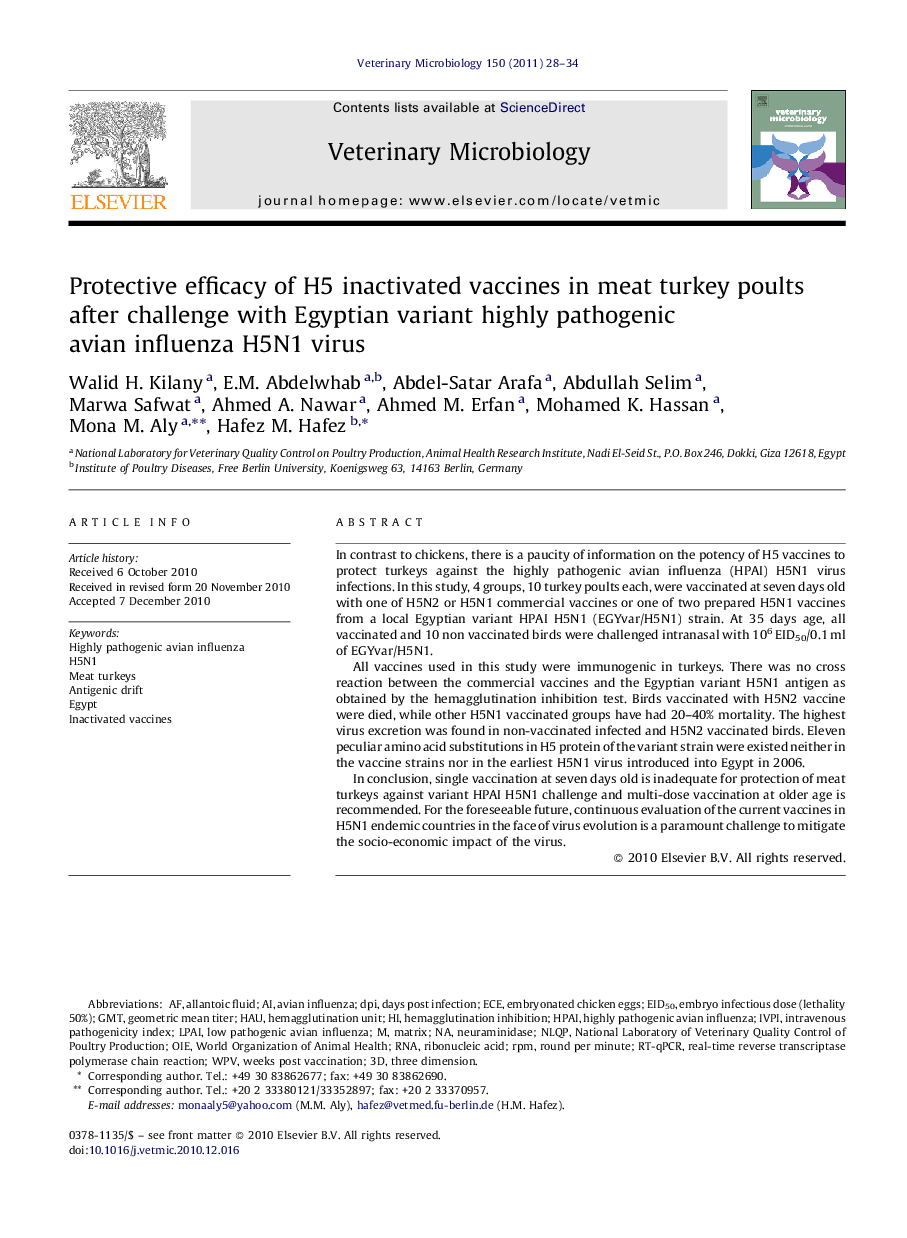| Article ID | Journal | Published Year | Pages | File Type |
|---|---|---|---|---|
| 2467632 | Veterinary Microbiology | 2011 | 7 Pages |
In contrast to chickens, there is a paucity of information on the potency of H5 vaccines to protect turkeys against the highly pathogenic avian influenza (HPAI) H5N1 virus infections. In this study, 4 groups, 10 turkey poults each, were vaccinated at seven days old with one of H5N2 or H5N1 commercial vaccines or one of two prepared H5N1 vaccines from a local Egyptian variant HPAI H5N1 (EGYvar/H5N1) strain. At 35 days age, all vaccinated and 10 non vaccinated birds were challenged intranasal with 106 EID50/0.1 ml of EGYvar/H5N1.All vaccines used in this study were immunogenic in turkeys. There was no cross reaction between the commercial vaccines and the Egyptian variant H5N1 antigen as obtained by the hemagglutination inhibition test. Birds vaccinated with H5N2 vaccine were died, while other H5N1 vaccinated groups have had 20–40% mortality. The highest virus excretion was found in non-vaccinated infected and H5N2 vaccinated birds. Eleven peculiar amino acid substitutions in H5 protein of the variant strain were existed neither in the vaccine strains nor in the earliest H5N1 virus introduced into Egypt in 2006.In conclusion, single vaccination at seven days old is inadequate for protection of meat turkeys against variant HPAI H5N1 challenge and multi-dose vaccination at older age is recommended. For the foreseeable future, continuous evaluation of the current vaccines in H5N1 endemic countries in the face of virus evolution is a paramount challenge to mitigate the socio-economic impact of the virus.
